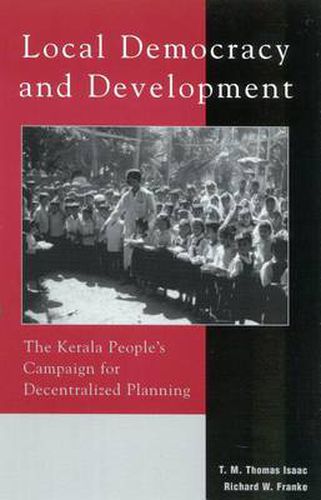Readings Newsletter
Become a Readings Member to make your shopping experience even easier.
Sign in or sign up for free!
You’re not far away from qualifying for FREE standard shipping within Australia
You’ve qualified for FREE standard shipping within Australia
The cart is loading…






In this history, a key figure in the People’s Campaign in Kerala provides an insider’s account of one of the world’s most extensive and successful experiments in decentralization. Launched in 1996, the campaign mobilized over three million of Kerala’s 30 million people and resulted in bottom-up development planning in all 1052 of its villages and urban neighbourhoods. The authors detail the background to the campaign, trace its several stages, asses problems and how they were solved or not, and evaluate concrete results and reforms. The work tells a story of mass mobilization and innovation as bureaucratic opposition was overcome, corruption and cynicism were rooted out, and parliamentary democracy prevailed. Considering both the theoretical and applied significance of the campaign in the context both of India’s development since independence and of international debates about decentralization, civil society and empowerment, this study seeks to offer valuable lessons for sustainable development world-wide.
$9.00 standard shipping within Australia
FREE standard shipping within Australia for orders over $100.00
Express & International shipping calculated at checkout
In this history, a key figure in the People’s Campaign in Kerala provides an insider’s account of one of the world’s most extensive and successful experiments in decentralization. Launched in 1996, the campaign mobilized over three million of Kerala’s 30 million people and resulted in bottom-up development planning in all 1052 of its villages and urban neighbourhoods. The authors detail the background to the campaign, trace its several stages, asses problems and how they were solved or not, and evaluate concrete results and reforms. The work tells a story of mass mobilization and innovation as bureaucratic opposition was overcome, corruption and cynicism were rooted out, and parliamentary democracy prevailed. Considering both the theoretical and applied significance of the campaign in the context both of India’s development since independence and of international debates about decentralization, civil society and empowerment, this study seeks to offer valuable lessons for sustainable development world-wide.